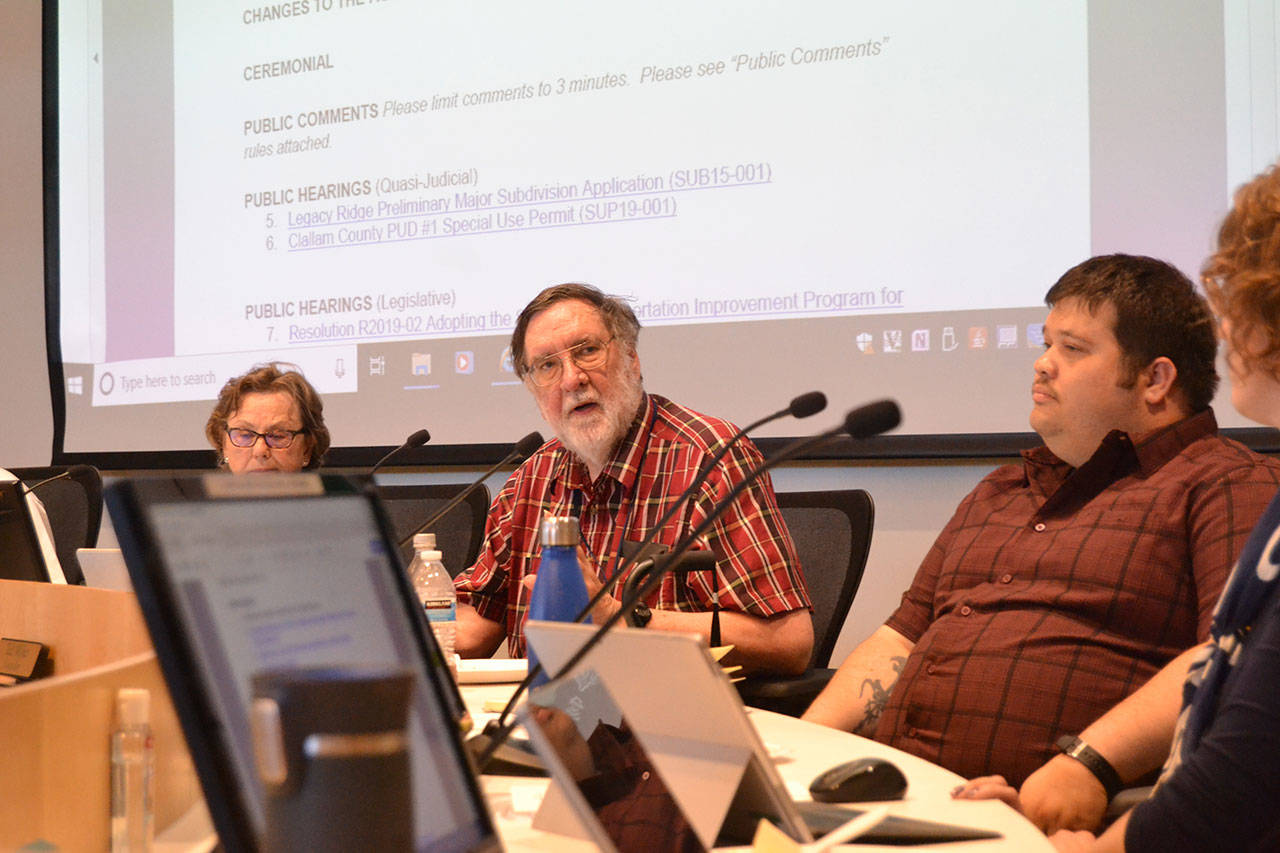Sequim city councilors voted down a temporary moratorium Monday night that would have prevented future permits — and halted the Jamestown S’Klallam Tribe’s proposed Medication-Assisted Treatment (MAT) facility — within the city’s Economic Opportunity Areas.
Councilor Ted Miller proposed a three-month moratorium on Aug. 12 in a work session that would have directed city staff to review zoning requirements for the Economic Opportunity Areas and see if there were changes among the allowed uses to determine what needed conditional use permits.
“At the same time we’ve got to structure it so it’s not so discriminatory it couldn’t survive a court challenge,” Miller said.
However, city councilors voted down the moratorium 4-3, with Mayor Dennis Smith and councilors Bob Lake, Candace Pratt and Jennifer States opposed.
States said she opposed a broad permit ban because it could dissuade potential grant opportunities and developers from bringing jobs to Sequim.
“I would be hesitant to move forward with a moratorium,” States said. “It sends a very bad signal to the state level and financial community that’s currently looking at the Emerald Coast Opportunity Zone (a program offering tax incentives to under-served communities).”
Pratt agreed, saying it sets “a dangerous precedent.”
Miller said his intent for the moratorium wasn’t intended as “hostile” to development but so that the city could review the Economic Opportunity Areas for potential changes.
“If we don’t do this, there’s nothing else the city council can do,” he said.
Barry Berezowksy, Sequim director of community development, said to enact a moratorium the city must declare “some kind of emergency” and with many of the 60-plus allowed uses in an Economic Opportunity Zone permitted elsewhere in the city it’d be difficult to defend the purpose.
City Attorney Kristina Nelson-Gross cited other cities that went through or are in litigation over moratoriums and that there could be a large court costs and settlements.
“There’s a better chance than 50/50 that you’d still have the (MAT) facility in place when it’s all said and done,” she said.
MAT Facility
Sequim city councilor William Armacost said “the public outcry has been evident” and he wants a better look at the potential impact of the MAT facility.
“We’re at a point that this is too much to swallow,” he said.
Armacost said he questions transferring someone from one drug to methadone or suboxone.
“I’m not suggesting a simple fix for one way or the other,” he said. “You have to look at the recovery and rehabilitation component.”
Pratt read some information from the tribe’s “Healing Campus Fact Sheet,” noting that “patients will receive daily medications for their opioid use disorder and receive wrap-around services of primary care, dental, individual and group counseling, childcare and transportation if needed.”
She said at the tribe’s Aug. 8 forum, people in treatment with suboxone spoke about how it’s changed their lives.
“They’re functioning adults because of it; don’t just dismiss it,” Pratt said. “It’s not that it can’t help people. I don’t think you serve all the constituents here saying it’s not going to help.”
Armacost said he believes there are success stories on the treatment drugs offered by the potential facility, but that he questions the facility’s potential location. He worries with it coming in, people’s quality of life in Sequim is “going to have a dramatic change.”
“Where ever you have drug addicts, you have drug dealers trailing, and that’s the cartel,” Armacost said.
States said there are many people in Sequim with drug addiction already here.
“The fear of ‘If you build it, they will come’ doesn’t resonate with me when I know there are people here now struggling and need these services,” she said.
Tribal representatives previously said the first phase of its Healing Campus includes a 15,000-square-foot MAT facility for up to about 250 patients. The second phase consists of a 16-bed psychiatric treatment hospital.
This discussion carried over from the city council’s MAT forum on July 29 where Smith said he accidentally adjourned the meeting before councilors could hold a planned discussion.
Tribal officials have not given a date for when they plan to submit an application or the MAT facility to the City of Sequim.
City information
City staff recently presented a new section on the city website answering questions from the July 29 meeting about the proposed Medication-Assisted Treatment Center at: www.sequimwa.gov/866/Medication-Assisted-Treatment-MAT-Center.
City staff said the new web page is meant to provide links to staff’s responses to questions from the meeting, share submitted notes and letters provided by the public, and provide copies of emails received by council and city staff about the proposed facility.



